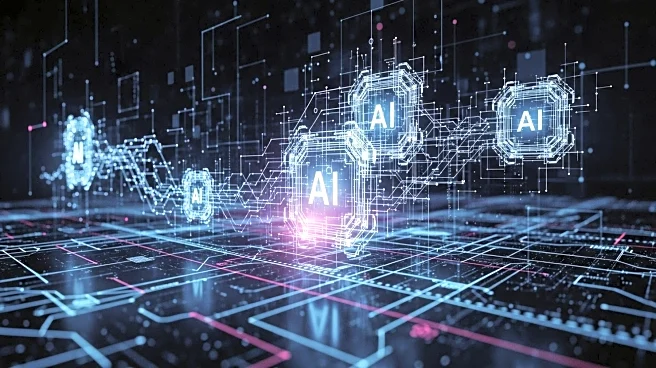What's Happening?
The rise of artificial intelligence (AI) in software development has sparked discussions about the potential obsolescence of developers. However, Steven Kleinveld, CEO of Skylark, an applied AI lab, argues that AI will not replace developers but rather enhance their capabilities. Kleinveld emphasizes that while AI can handle repetitive tasks such as generating code snippets and filling in boilerplate, it cannot independently create reliable, secure, and scalable products. The current AI tools, including large language models like Anthropic's Claude and OpenAI's ChatGPT, have improved significantly, allowing developers to work more efficiently. Kleinveld suggests that developers who integrate AI into their workflow will become more valuable, as AI serves as a powerful assistant rather than a replacement.
Why It's Important?
The integration of AI into software development represents a significant shift in the industry, with implications for the future of work and the skills required for developers. As AI tools become more sophisticated, developers who adapt and learn to work alongside these technologies will likely see increased demand for their skills. This evolution could lead to more efficient development processes, reducing the time and resources needed to bring products to market. However, it also highlights the need for developers to continuously update their skills and understand the limitations of AI. The ability to discern when AI outputs are incorrect or when human intervention is necessary remains crucial, ensuring that products maintain quality and security standards.
What's Next?
As AI continues to evolve, developers will need to focus on becoming 'AI-savvy,' understanding how to leverage AI tools effectively while maintaining oversight of the development process. Companies may invest in training programs to help developers integrate AI into their workflows. Additionally, non-technical founders and stakeholders will need to gain a basic understanding of AI capabilities and limitations to make informed decisions. The industry may also see a shift in hiring practices, prioritizing candidates who demonstrate proficiency in using AI tools alongside traditional development skills.
Beyond the Headlines
The broader implications of AI in development extend to ethical and security considerations. As AI tools become more prevalent, ensuring that they are used responsibly and do not introduce vulnerabilities into software products will be critical. Developers will play a key role in maintaining ethical standards and addressing potential biases in AI-generated outputs. Furthermore, the cultural shift towards AI-enhanced development may influence educational curricula, with a greater emphasis on AI literacy and interdisciplinary skills.










